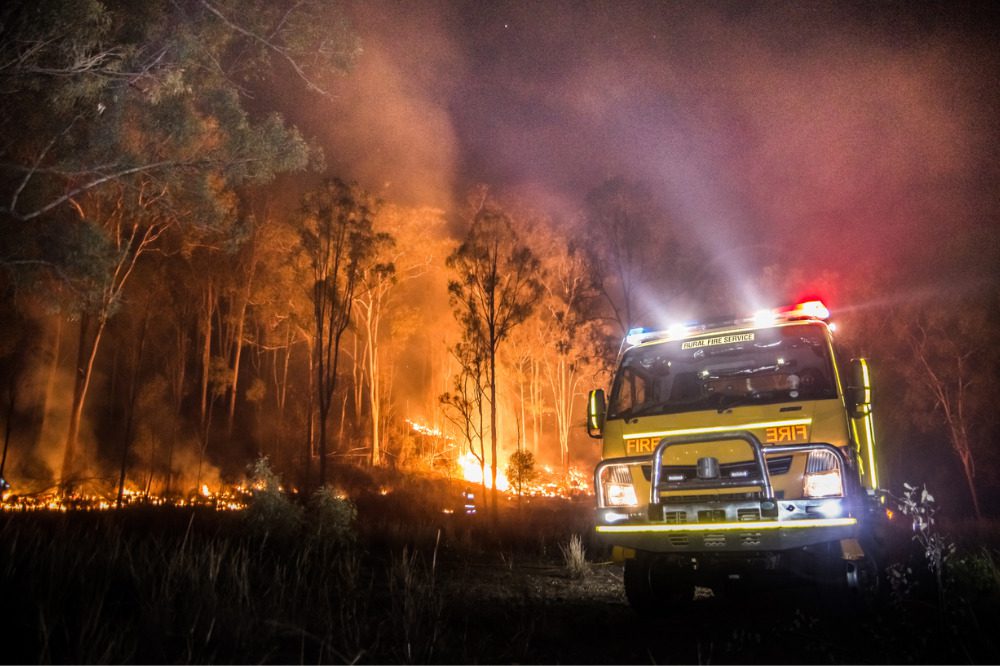IBC offers guidance for wildfire evacuees returning home

IBC offers guidance for wildfire evacuees returning home | Insurance Business Canada
Catastrophe & Flood
IBC offers guidance for wildfire evacuees returning home
Insurance industry ready to help, says VP
Catastrophe & Flood
By
Mika Pangilinan
Thousands of residents are preparing to return to their homes after authorities have begun lifting evacuation orders from the ongoing wildfires in Atlantic Canada. Amid this transition, the Insurance Bureau of Canada has stepped in to provide crucial information and support.
Amanda Dean, IBC’s Atlantic vice president, stressed that the insurance industry is ready to help those affected by the wildfires.
“We can appreciate the devastation many people are feeling as they return home after the wildfires,” she said in a news release. “IBC and the insurance industry are here on the ground, ready to help.”
IBC shared some tips and guidelines for homeowners to follow:
Most home insurance policies cover fire damage, even if the fire originated from a neighbouring property, as long as it wasn’t intentionally started by the policyholder.
The safety of residents must be the foremost concern upon returning home.
Do not use well water until it has been deemed safe by local authorities, as it can be contaminated after a fire.
Have the electrical system checked within a couple of days of re-entry.
Check for gas fumes and contact the local fire department and gas company if there is an odour.
Assess the damage and determine if it can be cleaned up with proper precautions or if professionals should be hired. Inform your insurer immediately about any damage.
Document all property losses and take photographs of the damage if it’s safe to do so, to facilitate the claims process.
Discuss coverage and deductibles with an insurance representative as soon as possible.
IBC also provided guidance on dealing with fridges and freezers:
Fire and related damage to refrigerators, freezers, and their contents are generally covered by insurance.
Freezers and their contents are typically covered for loss or damage caused by accidental power interruptions, up to a specified amount.
Before disposing of food from a freezer, create a list of contents or take photos for insurance purposes.
Local officials will provide information about fridge and freezer disposal for specific areas affected by wildfires.
Regarding oil tanks, IBC highlighted the following points:
Home insurance policies typically cover oil spills that cause damage to neighbouring properties under the liability portion of the policy.
Damage caused by a leaking oil tank inside the home is generally covered by most insurance policies.
Optional coverage may be available for fuel oil spills that occur outside and remain on the homeowner’s property. In such cases, homeowners should contact their insurer with as much information as possible.
For businesses impacted by the wildfires, IBC also offered the following reminders:
Business interruption or business income insurance, often an add-on to existing business property insurance, can cover lost earnings during an unexpected shutdown.
Business interruption policies can cover losses caused by specific risks or all risks that are not specifically excluded.
The indemnity period, which determines the duration of coverage for loss of business income, can be limited or extended. Understand the terms and conditions specified in your policy.
“As residents return home, it’s important to keep safety as a first priority,” said Dean. “Do not enter your home until it is safe to do so, as indicated by the local authorities who will be releasing properties back to homeowners.”
“We encourage everyone to contact IBC’s consumer information centre by phone at 1–844–2ask–IBC with general insurance questions, or if you are having trouble getting in contact with your insurance representative.”
Severe weather events caused 2022 to be the third-worst year on record in terms of insured damages across Canada, according to a previous IBC report. In fact, insured losses related to severe weather now routinely exceed $2 billion annually, compared to an average of $675 million per year between 2001 and 2010.
What are your thoughts on this story? Feel free to comment below.
Related Stories
Keep up with the latest news and events
Join our mailing list, it’s free!






